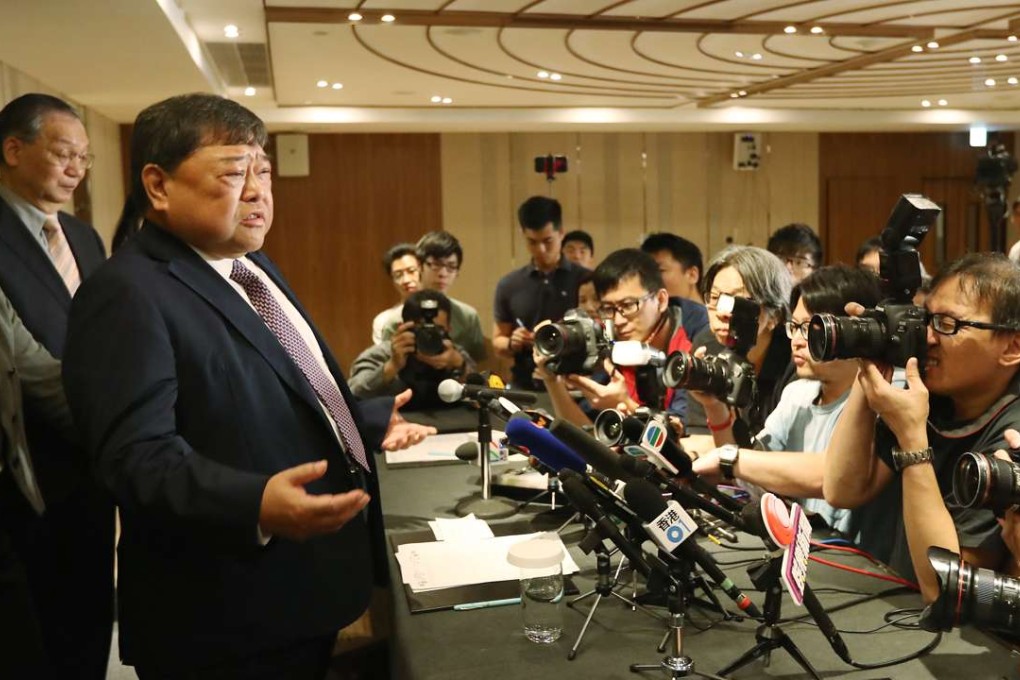Influx of ‘red capital’ raises fears for editorial independence in Hong Kong media
Analysts question role of two mainland investors in consortium that has come to the rescue of pay TV firm i-Cable

The restructuring of cash-strapped pay TV firm i-Cable Communications underlines the growing mainland Chinese presence in Hong Kong’s media sector.
While mainland investors are forbidden from holding a controlling interest in television stations under the communications regulatory regime, academics argue that the involvement of “red capital” will inevitably affect editorial decisions in local media – with or without political intention.
I-Cable’s white knight, Forever Top, led by property tycoon David Chiu Tat-cheong, counts two mainland investors as shareholders – Guangzhou R&F Properties chairman Li Sze-lim and John Zhao Huan, president of private equity firm Hony Capital. They will collectively control 18.75 per cent of shares upon completion of the deal.
“It appears to be a business decision, but it could have a political effect,” To Yiu-ming, associate professor in Baptist University’s department of journalism, said.